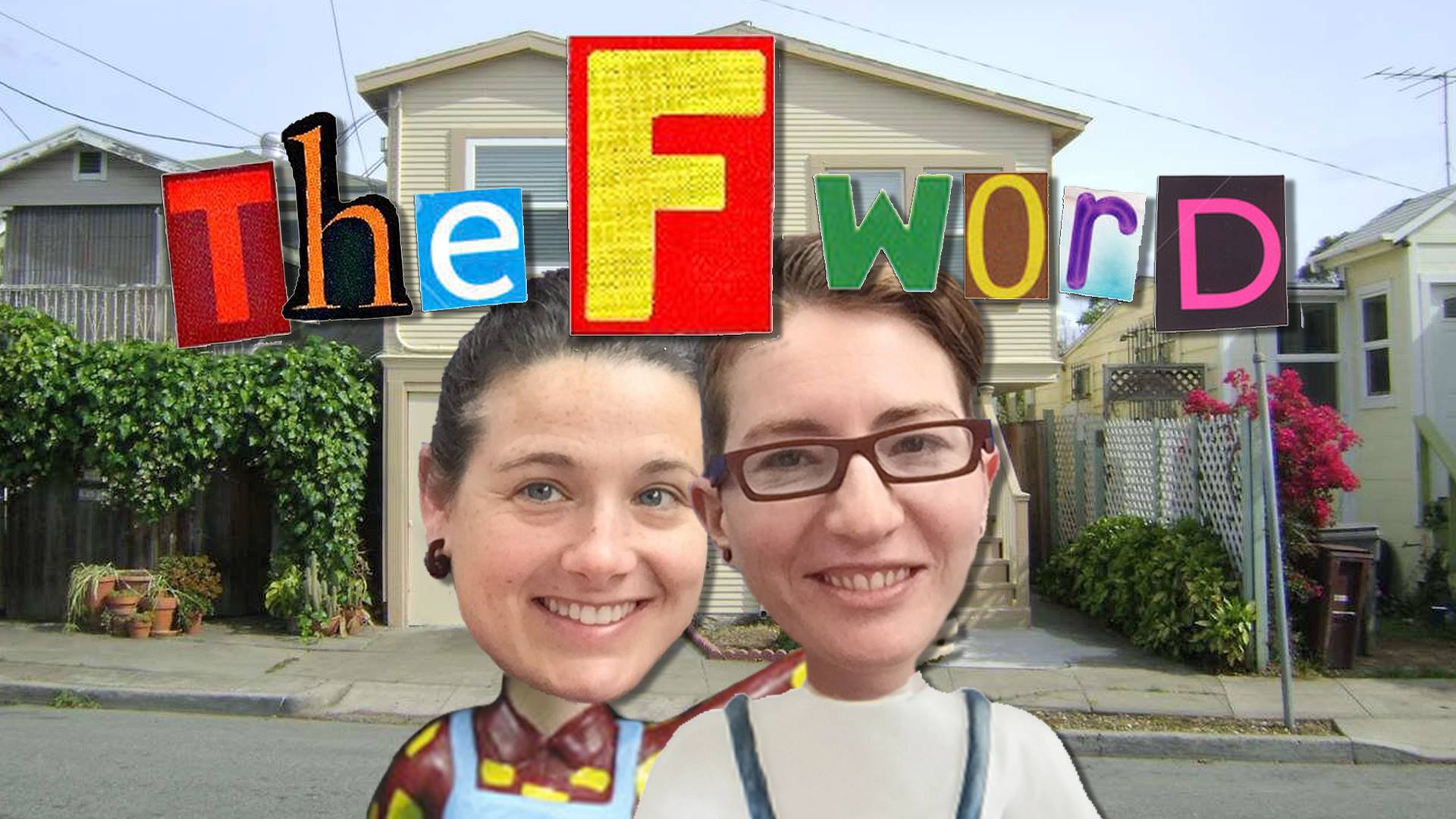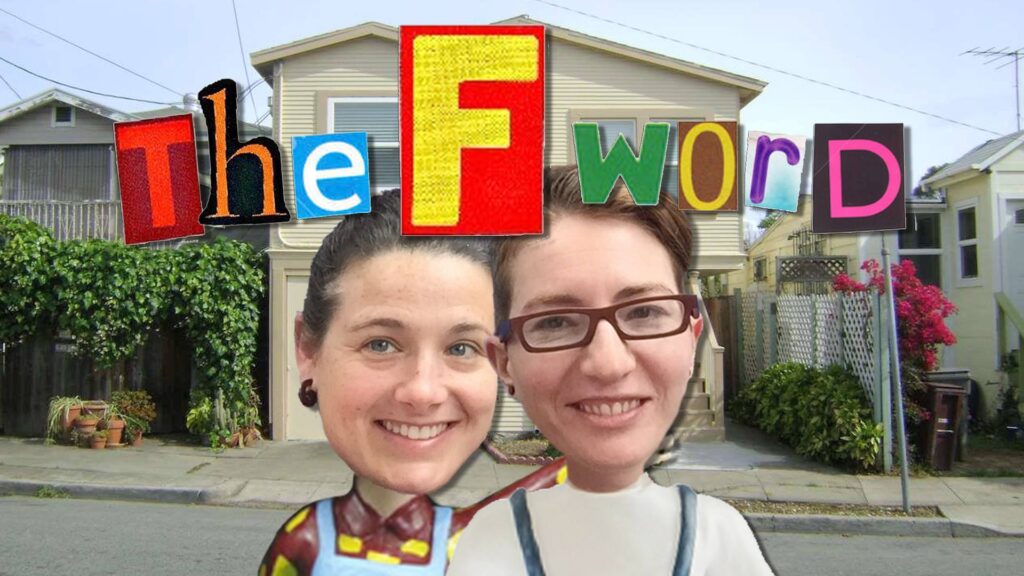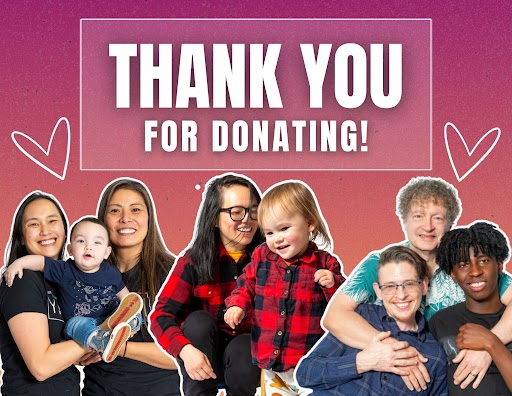 Guest Post by Nicole Opper
Guest Post by Nicole Opper
Nicole and Kristan document their journey into the foster care system to adopt a child in their new comedic documentary web series The F Word: a Foster to Adopt Story. Our Family Coalition is proud to be a supporter of the film and a co-presenter of its screenings at Frameline Film Festival. Below, Nicole shares a morsel of their story. Come for more at the screenings June 18th at the Roxie in San Francisco, or June 20th at the Elmwood in Berkeley.
When my cell phone rang I thought it was going to be our social worker calling about two siblings we’d seen photos of earlier that day in her office. It’s a bizarre monthly ritual: showing up to leaf through the new collection of flyers featuring foster children awaiting homes. Some of these children reappear month after month. Others are new faces. Their descriptions say things like “Enjoys playing soccer” or “Has an infectious smile,” before divulging the inevitable traumas they’ve faced.
We had made the decision to build our family through fost-adoption two years earlier and signed up for parent training classes at a local agency. We were open to any child age 0-4 and were told that it would be about a two year wait because everyone wants little kids. For awhile we thought about taking on an older kid, but knew this was unrealistic for us – we live in a tiny rent-controlled apartment in Oakland, and to leave this apartment would mean to leave the Bay Area altogether. Many of our friends had already been priced out. So we decided to stick to our guns, and two years later, almost to the month, I was answering this phone call, expecting to hear about next steps for the two little girls who had captured our hearts that morning, a two year old and her six year old sister. Not only had we broken our age rule but we’d doubled our number to two, deciding we’d make up for our lack of space with boundless love and plenty of outdoor adventures.

But the call about the siblings never came. In the time it had taken us to see their flyer and inquire about them, another family had already been selected. This was the third potential match that we’d gotten our hopes up about but that ultimately fell through.
The call was, in fact, about a baby. “Baby Boy” was what they called him, because he hadn’t been given a name. When I think back to the day we were told about him, none of it seems real. For one thing, my wife and I were already starting to feel pretty cynical about the whole process. Either we’d see a kid and get excited but wouldn’t be picked by their social worker, or we’d be picked but then it would fall through for other reasons. We knew this was part of the deal; that adoptions through foster care were messy and hard, that there would be joy but also profound grief. We just didn’t expect it to take so long to even be considered. Was it the gay thing? Our small home? Our income level?
We were told it was a concurrent planning case, which means there was a chance Baby Boy would be reunified with birth family. Were we still interested?
“Yes,” we replied.
Well okay then, we’d hear by the end of the day if we were selected. We spent the day wondering if the Yentas of the child welfare system would deem us to be a match. Sure, Baby Boy’s social worker had a thirty page document cataloging most of our major life choices, but how do degrees, careers, hobbies and the cities we grew up in add up to any sense of whether we’d be the right parents for a particular kid? Most kids in the system aren’t there because of abuse or abandonment. Most are there due to neglect. Poverty is an indicator for neglect, and the idea that there are kids in foster care who wouldn’t be there to begin with if their parents had received the support they needed was not only unjust but completely heartbreaking. This system treats the symptom instead of the cause, yet we put our faith in the process, because a broken foster care system doesn’t get fixed by those who ignore it, but by those who engage with it.
And then the call came. At 5pm later that day we were told we’d been selected. We would have a disclosure meeting the following week where we’d receive information about the child’s history and his needs. We knew next to nothing about him, but we knew he had a story, one written onto his heart and his body if not his conscious mind. It was a story that included two months of doctors, nurses, social workers and even volunteer ‘cuddlers’, but began months earlier in his mother’s womb, and centuries before that with his ancestors. We knew so little, but one thing we were clear about: our task was as much to honor this child’s story as it would be to care for him.
The F Word: a Foster to Adopt Story screens at Frameline June 18th and June 20th and streams on PBS Digital Studios in the Fall. On Twitter/Instagram/Facebook @thefwordseries.


